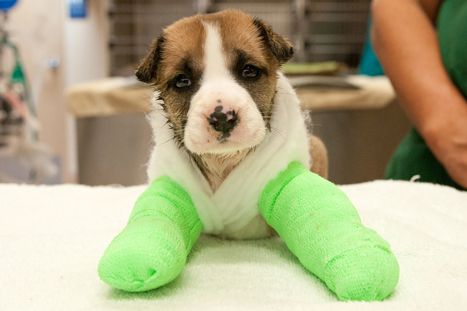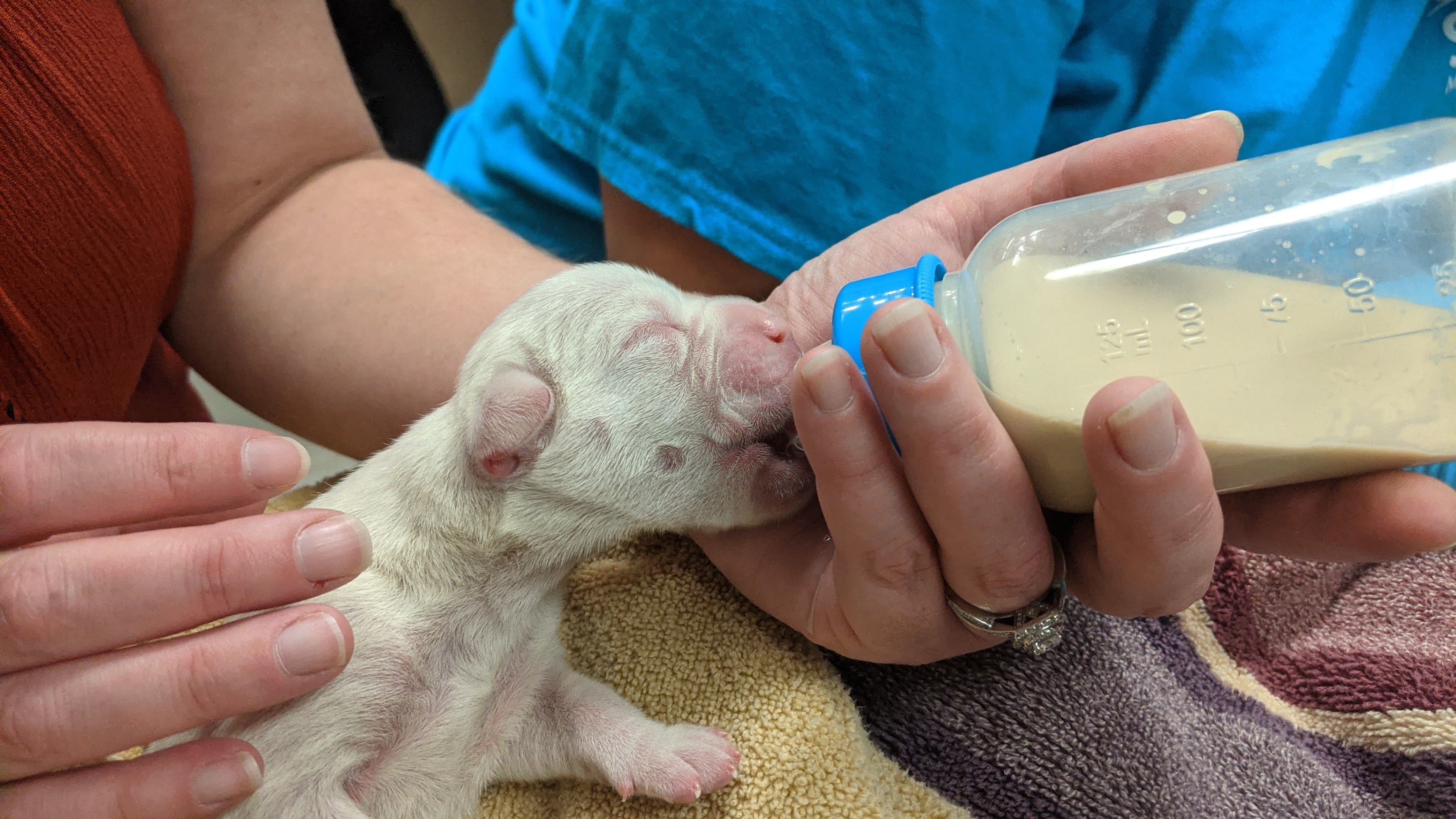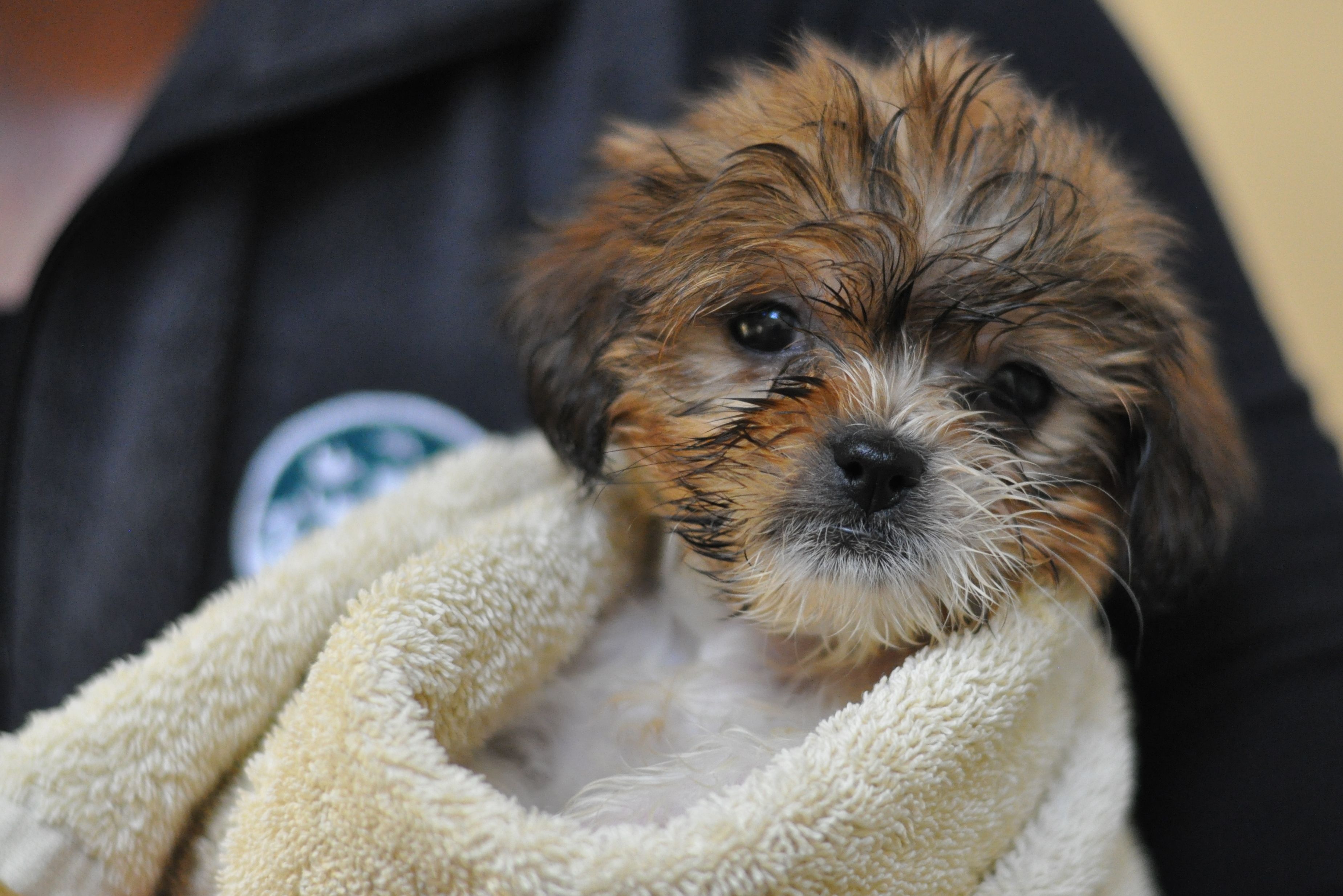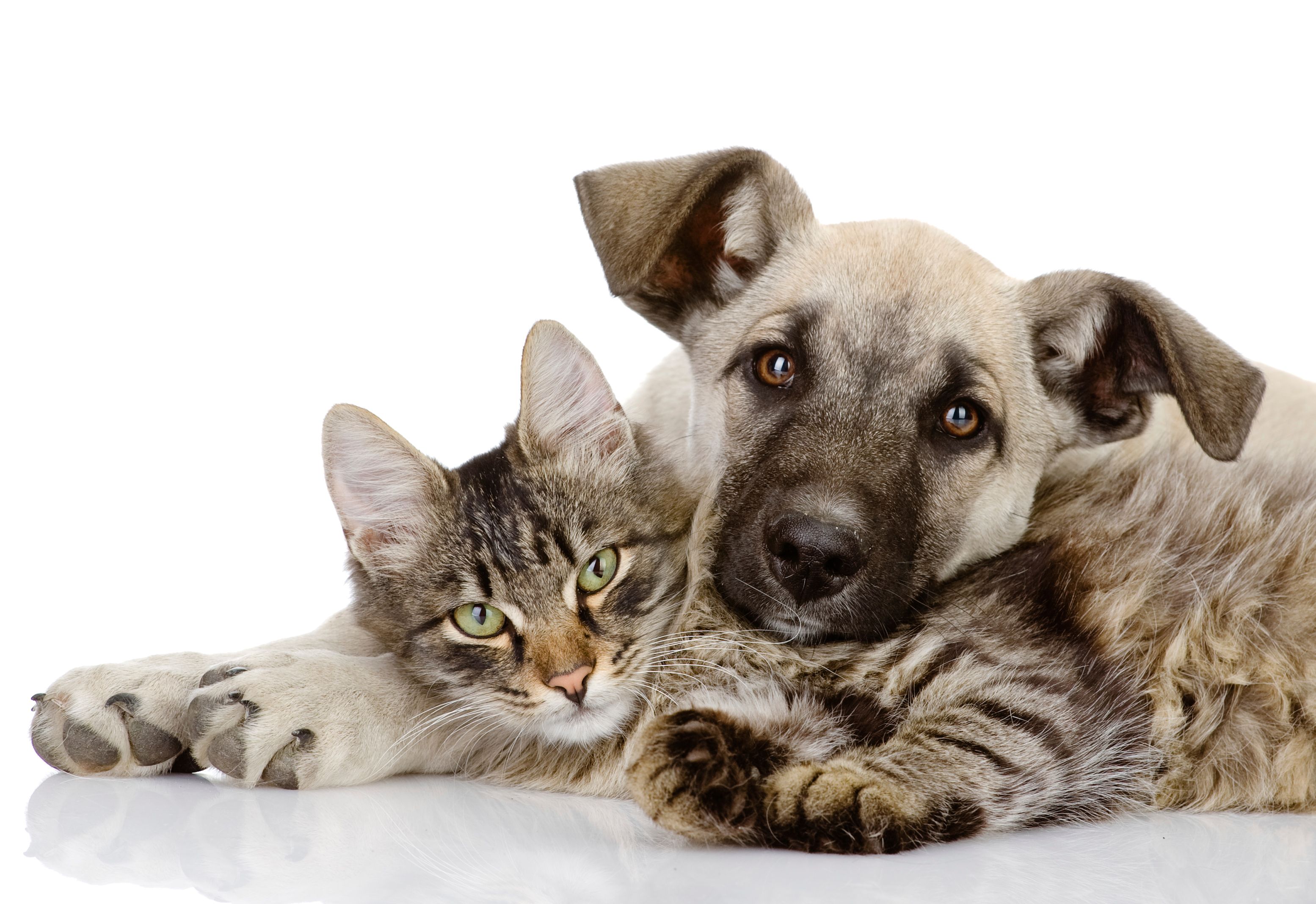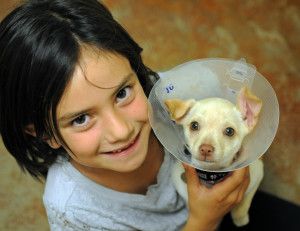Seasonal Safety Tips

Keep your pets safe with these simple tips for hot weather, cold weather, Halloween, Fourth of July, and more. Your pets depend on you, and we can help you keep them safe and secure.
-
HOT WEATHER WARNINGS
A parked car can quickly become deadly for a dog shut inside – even if the windows are cracked open. It is illegal to leave a pet in an unattended motor vehicle under “circumstances that could reasonably be expected to cause suffering, disability, or death to the animal.”
Prolonged exposure to extreme heat can lead to heat exhaustion or possible heat stroke. Children and pets should not be left unattended in enclosed vehicles. A parked car’s interior can reach over 120 degrees in less than five minutes, even with the windows partially open, causing brain damage or death. Keep in mind that conditions in our area change constantly. A shady spot on a foggy day can quickly transition to direct, hot sunlight.
If you see an animal locked in a hot car, contact SPCA Monterey County or call 911 immediately. Remember: it is illegal to leave an animal in an unattended motor vehicle under “circumstances that could reasonably be expected to cause suffering, disability, or death to the animal.”
Animals left at home outdoors must have access to shade and ample fresh drinking water. When in doubt, leave your pet indoors. Remember: what is hot to you is also hot to your pet.
Symptoms of heatstroke include:
- lethargy or listlessness
- heavy panting
- convulsions or vomiting
- lack of coordination
- collapse, coma, or death
If your dog exhibits symptoms of heatstroke, immediately move him to a cool area and apply cool wet rags or towels to lower his body temperature slowly then seek emergency veterinary treatment.
For more information, please contact us.
Other safety tips to consider in hot weather:
- Exercise your dog in the cooler early morning or evening hours.
- If your pet must be outside during the day, always provide constant shade and cool, fresh water in a tip-proof container.
Keep your pet well-groomed, but do not shave off their coat to “keep them cool.” Your pet’s coat protects him from sunburn and also acts as insulation against the heat.
-
 FOURTH OF JULY SAFETY TIPS
FOURTH OF JULY SAFETY TIPSSPCA Monterey County advises that the 4th of July holiday can be a dangerous holiday for pets. While fireworks can be an exciting part of holiday celebrations, they frighten many of our community’s companion animals. Traditionally the SPCA and other area animal shelters see a rise in the number of stray dogs and cats following the July 4th festivities. This increase in stray animals can also increase the number of animals hit by cars. The SPCA advises the following precautions to help keep your pets safe:
- Keep your pets indoors or in a secure, confined area where they feel comfortable. If your pet has a favorite blanket or toy, be sure he has that nearby.
- Please don’t take your pet to a fireworks show. Unfortunately, many people set off illegal fireworks that could scare your pets. Sadly, this could happen anywhere.
- Turn on a radio, television, or fan to muffle the sound of fireworks. Providing common household noises that your pet knows and trusts will help calm your pet if he is alone during the night.
- If possible, do not leave your dog or cat outside this weekend. Once scared, they will often jump fences and run fast and far from home, not noticing cars or other hazards.
- If your dog begins to whine, pace, and pant, try to distract him by playing his favorite game or having him perform his favorite trick.
- Ensure that your pet is wearing current identification tags at all times and has a microchip I.D. (available at The SPCA for only $25)
- If you know your pet is frightened of loud noises and flashes of light, (such as lightning and thunder), please consult your veterinarian for advice regarding medication. You can also try aromatherapy or products known as Thunder Shirts or contact the SPCA Behavior Training department for advice (831-264-5422).
If your pet is lost, please begin checking as soon as possible at SPCA Monterey County or your local animal shelter.
-
 HOLIDAY SAFETY TIPS
HOLIDAY SAFETY TIPS- Leftovers can be dangerous for pets during the holidays, especially turkey bones. As delicious as your Thanksgiving dinner was, avoid the temptation to share the bones with your pet. They are sharp, splinter easily, and when ingested can puncture an intestine and lead to an emergency clinic visit that will be painful for your pet and for your wallet.
- A risk that is often overlooked is the disposal of the turkey carcass. It is safest to double bag it in plastic bags and place it in a secure garbage container in your garage or outside. Be sure that the lid is very secure. Raccoons are notorious for gaining access to containers or enclosed areas that we think are raccoon proof.
- Even boneless leftovers can upset a pet that is used to eating a consistent, single brand, high quality pet food. Ham and turkey are both high in fat content and may cause digestive upset. Pets exhibiting symptoms that include pain in the abdomen, diarrhea, vomiting, depression, or loss of appetite should be seen immediately by a veterinarian.
- If you put out candy just for parties or for the whole season, be careful that your pets don’t want to play with or eat the candy. Chocolate can cause illness and candy wrappers are often ingested and cause a blockage. Both are potentially deadly and warrant a trip to your veterinarian’s office.
- Some holiday plants are dangerous or deadly to your pet. Click here for more information on the many poisonous plants and plant parts that are commonly found in the home. Lilies, mistletoe and holly are just a few of the seasonal plants traditionally included in holiday decorations that can make your pet ill.
- Keep inquisitive pets away from wrapped presents, especially ones that might have tempting food inside. You don’t want to ruin a fun surprise by having your cat or dog open – and eat – your holiday presents.
- Cats are notorious for making low hanging ornaments their preferred play toys. Glass ornaments are a particular hazard – a breakage can result in a pet ingesting a sharp glass shard that could puncture the stomach or intestines. Put glass ornaments and ornaments with small parts that can break off and be ingested on upper limbs and dedicate the lower limbs to sturdy wooden or plastic ornaments.
- Pet owners may want to affix holiday trees to the wall to prevent pets from knocking them down. If you use a small or lightweight stand, secure the tree to the wall with fine wire or fishing line of suitable test using small eye screws that will not seriously damage your walls. A better alternative is to utilize a very heavy, water filled, or cast iron tree stand which will keep all but the heaviest cat from tipping your tree.
- Menorahs and other lit candles should be placed out of harm’s way of playful cats and kittens, not to mention happy dog tails!
- Bringing a new pet into the home during the holidays can also be very challenging. The SPCA strongly recommends that pets only be given as gifts when the recipient is able to play an active role in the selection of the pet. Stuffed animals can be given to represent the gift, and the SPCA has pet adoption gift certificates available for giving. Gift certificates are available in any value at the SPCA, located at 1002 Highway 68, directly across from Laguna Seca Raceway or by visiting www.SPCAmc.org. Contact us at 831-373-2631 or 422-4721.
-
 COLD WEATHER SAFETY TIPS
COLD WEATHER SAFETY TIPSBrr! It’s cold outside!
SPCA Monterey County advises pet owners that cold and freezing temperatures can be deadly for pets and livestock. Pets that normally live outdoors during mild weather conditions need extra protection from freezing temperatures. The SPCA recommends bringing all pets into the home or a warm, heated garage during the upcoming cold snap.
What You Should Know:
- Prolonged exposure to extreme cold and freezing temperatures can lead to life-threatening hypothermia (severe lowering of the normal body temperature), especially for smaller dogs, cats, dogs with short hair, and all animals who are acclimated to our typically warmer climate.
- Ensure that outdoor water sources for pets and livestock are checked frequently as they can freeze over and prevent access to water.
- If unable to be inside, dogs habituated to the outdoors must be protected by a dry, draft-free doghouse that is large enough to allow the dog to sit and lie down comfortably, but small enough to hold in his body heat. The floor should be raised a few inches off the ground. Provide extra dry blankets and towels and turn the house away from the wind, covering the doorway with a flap of heavy waterproof fabric or plastic. Since most animals in our area are not acclimated to extremely cold weather, the SPCA advises bringing them inside if at all possible.
- Dogs and cats not habituated to the outdoors need to be brought inside to ensure their safety.
- Do not leave indoor/outdoor housecats outside overnight. They are not acclimated to the weather conditions and can suffer hypothermia or become lost, stolen, or injured.
- During the winter, outdoor cats sometimes sleep under the hoods of cars. When the motor is started, the cat can be injured or killed by the fan belt. If there are outdoor cats in your area, bang loudly on the car hood before starting the engine to give the cat a chance to escape.
- Do not leave your pet alone in a car during cold weather. Just like hot cars can be deadly in the summer, cold cars can become too cold for pets (or people) during the winter.
- Pets found suffering from the effects of severe cold weather should be taken immediately to a veterinarian. During transport, the animal should be wrapped in warm, dry towels and blankets.
If you see an animal left outside in the cold, please contact the SPCA’s Humane Investigations Department at 373-2631 or 422-4721 x213. We can help educate the owners on how to properly care for their pets during the cold winter nights. All calls are confidential.
-
 HALLOWEEN SAFETY TIPS
HALLOWEEN SAFETY TIPSSPCA Monterey County urges pet owners to take some simple precautions to safeguard their pets during Halloween week:
- Pets should be kept indoors and preferably confined to an area of the home where they cannot escape. Multiple strangers in costume at your door can be very stressful for your pet. Pets might slip out the front door unexpectedly or become frightened and bite.
- Keep cats safe by confining them indoors during Halloween week. Cats can sometimes be the victims of Halloween pranks or cruelty related incidents.
- Pets should always have a current license, ID tag, and microchip so they can be returned in the event they are frightened and escape from the home.
- If you plan to dress your pet up for Halloween, practice first to get your pet used to the costume. Some pets simply don’t like costumes, so don’t force it. Make sure it’s easy to take off if your pet becomes scared and has breakaway parts (like velcro). Always keep your pet under your control when he is in costume.
- Keep lit pumpkins, candles, and decorations away from animals. Companion animals can knock them over and cause fires or injure themselves.
- Candy should be kept away from curious pets and should never be given to animals. Chocolate can be deadly to pets and tin foil and cellophane wrappers can be hazardous if swallowed.
For more information on how to have a safe and happy Halloween for your pets, please contact the SPCA at 831-373-2631 or 422-4721.
-
EASTER TIPS
-
SELECTING A SKILLED PET SITTER
SPCA Monterey County strongly recommends asking your potential sitter the following questions to help you decide if they are right for your family, pets and lifestyle.
- How long have they been pet sitting?
- Do they perform in-home pet sitting services where they stay overnight with your pets or do they visit your home at set times?
- What services do they provide for your pets (feeding, walking, grooming, playing, etc)?
- What quantity and type of quality time will they spend with your pet?
- Are they insured and bonded?
- Can they provide references from other clients?
- What other services do they offer (bringing the the mail and newspaper, watering plants, etc.)?
After you choose a pet sitter that fits your needs, be sure to give them a detailed description of your pet’s routine and feeding schedule, your itinerary, your emergency contact information, your veterinarian’s information, and the contact information for someone who can make emergency decisions for your pet if you are out of reach. In addition, be sure to set up a payment plan at your veterinarian’s office should the need for emergency services arise while you are away and notify your veterinarian about who has permission to bring your pet in for treatment.






